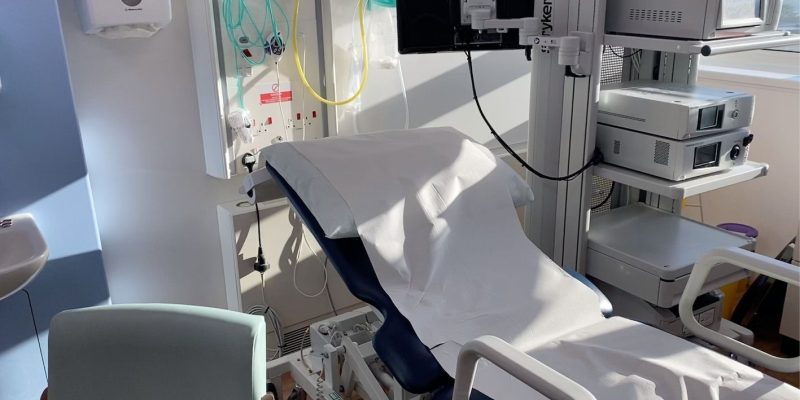As Cervical Cancer Prevention Week comes to an end, the smear test age debate continues.
Campaigns to lower the minimum age of smear tests to 18 from 25 were put to parliament in 2016 and were voted against.
But for 22-year-old Amy Lee, it’s hard to grasp why the age cannot be lowered if it would save people’s lives.
“It could save lives”
“I have to wait another three years to get one when I’m eager to have one now if I could.”
Cervical Smear tests are the screening process the NHS uses to detect and treat cancer of the cervix. The cervix is located at the top of the vagina, the opening for the womb.
Caused by strains of the Human Papillomavirus, it’s the fourth most common cancer for women affecting over 3000 females a year, that’s about nine diagnoses a day.
The Government voted on the age reduction of smear tests several years ago and declined to approve the bill stating lowering the age would “do more harm than good.”
One of the reasons expressed in the response detailed that due to the introduction of the HPV jab to 11- and 12-year-old-girls. But for Ella Wells, this does not give her the peace of mind that having an early cervical smear test would.
“In secondary school, we had two to three jabs against cervical cancer and I remember that being the first time I had ever heard of it, it’s not something as known as breast cancer in women.”
“If smear tests are moved to a younger age then it can be caught quicker and treatment can be given quicker”
Professional Opinion
The response did not explain what harm reducing the age could cause. So we posed the question to Nuffield Health Bournemouth gynaecologist, Mr Alex Taylor, to dive deeper into what harm testing young girls under 25 would cause.
Mr Taylor explained how a cervical smear is conducted and how performing the test too early can affect fertility.
“We use a wire loop that’s energised with electricity, so it’s basically like a hot knife through butter, it’s very fine but it just basically shaves off the top of the cervix. We just shave 5mm to 10mm off that lesion and then that removes the area”.
Mr Taylor explained how as young girls are developing and maturing, small changes can occur within the cervix which is completely normal however, could show up as abnormal on a smear test.
“When we were testing younger girls, what we found were these were coming back with small changes so we were taking another loop and removing more of the body of the cervix”.
Mr Taylor further explained that the cervix is “part of the mechanism that keeps the baby in the womb” and keeps the baby inside until he/she is ready to come out at 37 weeks.
“So if you remove a large piece of the cervix, you’re weakening that mechanism to keep the baby in the womb. We began to see an increased risk of pre-term labour because of cervical incompetence.
“This meant that the baby would come out early, sometimes very early at a stage where he or she would not survive.”
Despite the age debate, the importance of receiving a regular cervical smear is still high on the NHS guidance list.
A recent survey was launched this week to find out why only one in three women nationwide attend their smear tests.
Another Campaign
From the age of 25 until 50, women are invited for a cervical smear every three years. From 50 to 64, they are invited every five years.
A secondary campaign met with a lot of backlash proposed to extend the intervals in between screenings for 25-50 year olds to five years.
Amy Lee said: “I don’t understand why. If someone catches something early it can save a life, it is life and death here and it’s proven if you catch it early, you can help cure someone. So why is it better for to be extended by another two years”
Mr Taylor agrees with Amy saying “it takes ten years for these cells to grow. If you imagine a scale of nought to ten with ten being cancer and nought is nothing, the screening looks to pick up the problem when you are a one or a two”
He explained extending this could cause more women to have later-stage diagnoses rather than more early intervention measures.
Don’t Delay
Mr Taylor urges all young women invited for their cervical smear test not to delay, attend their screenings at the advised intervals and not be afraid of the test itself.
“Whatever the reasons are, the team have got the skills to reassure, put them at ease and actually educate them about the positives for their health and the importance of engaging in this programme.”
Previously in the week, we spoke to a cervical cancer survivor who echoes Mr Taylor’s message saying “Don’t let ignorance or embarrassment stop you from going. Don’t forget or put it off.
“I would urge them to attend when invited.”
To find out more about Cervical Cancer Screenings, visit the NHS Website.


 Bournemouth nurse concerned about removal of Government’s Plan B
Bournemouth nurse concerned about removal of Government’s Plan B